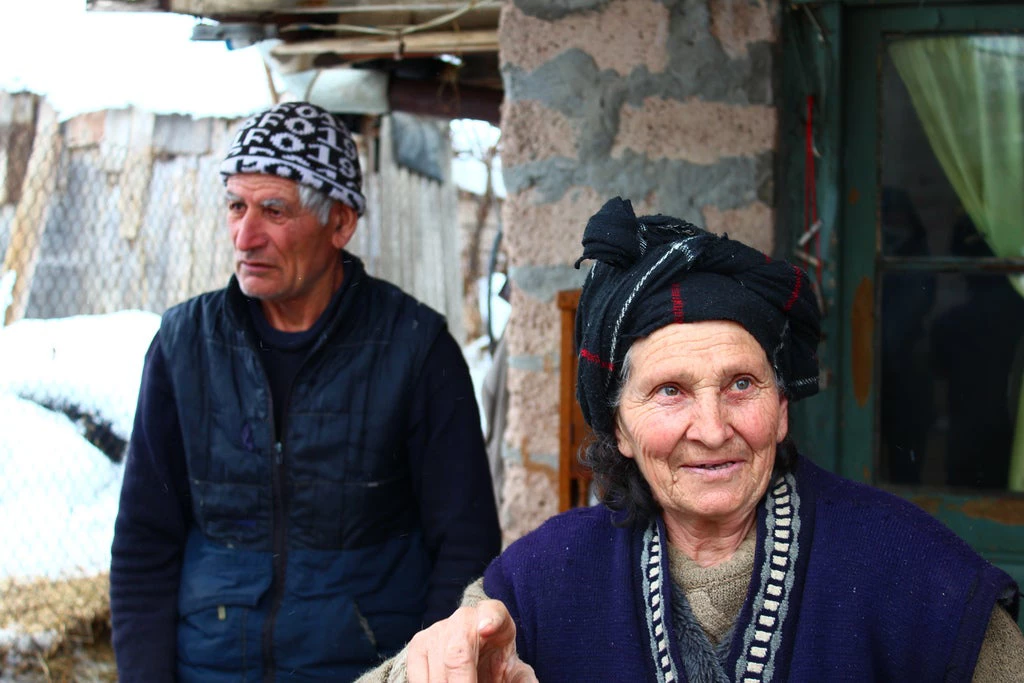
An estimated 38 million people worldwide are forcefully displaced within the boundaries of their own country. In the majority of cases, internally displaced persons (IDPs) live in protracted displacement. For IDPs fleeing rural areas, loss of land, productive assets and sudden shift towards a non-agricultural lifestyle can be stagnating.
Georgia has some 270,000 internally displaced persons (IDPs) from the regions of Abkhazia and South Ossetia . For them, sustainable livelihoods remain a challenge - 80% of the IDPs in Georgia are unemployed compared to a 15% unemployment rate nationwide (2013 figures).
Many Georgian IDPs would like to engage in agricultural production, but suffer from lack of access to sufficient land for pursuing agricultural livelihoods.
A previous study by the World Bank in 2013 suggested that one of the opportunities to improve IDP livelihoods is improving the access to agricultural land, including through land leasing.
Land leasing is considered a feasible approach because it’s not as capital intensive as purchasing land and entails a simpler transaction. But despite the Georgian Government’s emphasis on stimulating agricultural production, land leasing is still an under-utilized form of market transaction, which would help make land accessible to motivated and capable farmers.
With support from the Korea Trust Fund for Economic and Peacebuilding Transitions (KTF), my team commissioned a feasibility study for identifying procedures to improve and simplify the process by which IDPs and rural communities in Georgia can identify and secure land access for agricultural purposes. The study, “Improving Access to Agricultural Land through Leasing for Internally Displaced Persons in Georgia,” proposes key issues that have to be addressed when designing a land-leasing program for IDPs. These are:
- A land leasing program should be open for participation by rural households generally, not just IDPs. A program for both groups would increase support for it;
- The program should be implemented at the community level, with 2-3 adjacent communities working together. Support from the municipality will be essential;
- The biggest challenge to program success is going to be finding land for leasing. Effective public outreach will be important for meeting this challenge;
- Most agricultural land is not registered, which will make it harder to identify owners and could lead to lease enforcement problems if conflicts arise. Parties to leases could either simply acknowledge these risks when signing leases, or the land could be registered before lease signature; and
- The program should require that land leases be concluded in writing. Registration of leases should be voluntary.
Based on the recommendations above, the land leasing pilot is now being implementing in targeted villages with large concentrations of IDPs in the Georgian municipalities of Gori and Zugdidi. The pilot areas have been selected based on availability of arable land, accessibility of land ownership data and communities’ interest to participate. The pilot is being implemented by a consortium consisting of the Danish Refugee Council and Charity Humanitarian Centre "Abkhazeti," a local NGO with more than 20 years of experience working on IDP livelihoods in Georgia. The major activities under the pilot include public outreach; training on land leasing procedures; opportunities/risks and legal framework; legal counseling for potential lessors, lessees and other interested groups; and informing potential lessees about complimentary agricultural support and livelihood programs.
The pilot implementation is guided by an intra-governmental Advisory Committee consisting of relevant Ministries and State Agencies. The results, anticipated in June 2016, will allow for a deeper understanding of current land leasing practices in rural Georgia and potential entry-points for increasing and formalizing land leasing practices to improve food security and income opportunities for the most vulnerable population, including IDPs.
I’d like to share a comment I heard from David Egiashvili, a Land Administration Consultant in Georgia:
“Since Georgia does not have long history of rule of law, most land leasing takes place informally between farmers. The land leasing pilot can serve as a catalyst for developing a model/best practice for formal land leasing in Georgia, which is a pre-requisite for long-term agricultural business planning. The land leasing approach complements the World Bank-supported Irrigation and Land Market Development Project in Georgia, which will make land more attractive for farming through irrigation and clarify the tenure status in targeted areas.”
Do you have experience or best practices from your country to share with Georgia on land leasing? Leave a comment below!


Join the Conversation